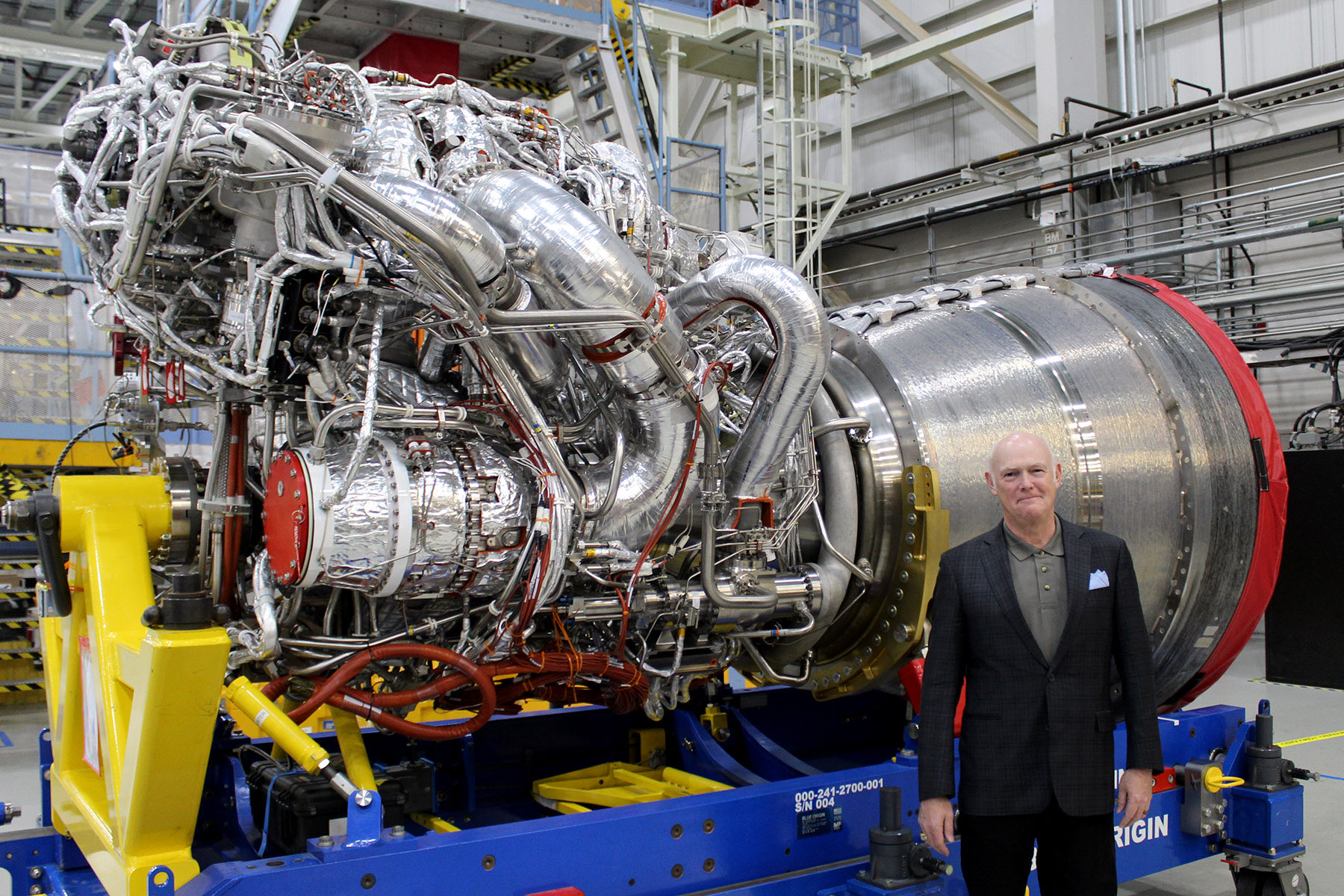Vulcan’s first mission will carry Astrobotic’s lunar lander, Celestis payloads and two Project Kuiper prototype satellites
WASHINGTON — The first two satellites of Amazon’s Project Kuiper broadband constellation — Kuipersat-1 and Kuipersat-2 — will launch on the maiden flight of United Launch Alliance’s Vulcan Centaur rocket, the company announced Oct. 12.
ULA said the first flight of Vulcan will be in the first quarter of 2023 from the company’s launch site at Cape Canaveral, Florida.
Vulcan is years behind schedule due to delays in the development and testing of the Blue Origin BE-4 engine that powers the vehicle’s first stage.
ULA’s CEO Tory Bruno said in a news release Oct. 12 that the first Vulcan launch vehicle is nearing completion at ULA’s factory in Decatur, Alabama and is awaiting installation of its BE-4 engines.
“We expect to ship the completed vehicle to the launch site in November,” said ULA.
The first Vulcan mission is now expected to carry payload customer Astrobotic, which is flying the Peregrine lunar lander to the moon for NASA’s Commercial Lunar Payload Services program. The rocket also will launch Celestis payloads and Amazon’s two demonstration satellites.
Vulcan Centaur needs to complete two commercial orbital missions successfully in order to get certified to launch U.S. military and intelligence satellites under the National Security Space Launch program.
Having Vulcan certified as soon as possible is critical for the Defense Department. ULA currently launches NSSL missions with its workhorse Atlas 5 rocket but DoD cannot buy any Atlas 5 launches beyond 2022 due to a congressional ban on the use of Russian rocket engines. The Atlas 5 uses the Russian-built RD-180s engines so it’s imperative for the company to start transitioning to Vulcan and fly a domestically produced engine.
Mark Peller, ULA’s vice president of major development, said in a statement: “We are committed to ensuring we fly the first certification mission and stay on schedule to achieve U.S. Space Force certification of Vulcan in advance of our first national security space mission in 4th quarter 2023.”
The success of Vulcan’s first launch also is significant for the vehicle’s future as a commercial launcher. ULA is under contract to provide 47 launches for Amazon’s Project Kuiper constellation, including 38 on Vulcan.
Launching two prototype satellites on the first Vulcan mission “will give us practical experience working together ahead of those launches,” Rajeev Badyal, vice president of technology for Project Kuiper, said in a news release. “Our prototype satellites will be ready this year, and we look forward to flying with ULA.”
“We’ll use findings from the mission to help finalize design, deployment, and operational plans for our commercial satellite system,” he said.
Amazon has secured up to 92 launches with ULA, Arianespace, and Blue Origin to deploy its constellation of 3,236 satellites. The company plans to retain its agreement with ABL Space Systems to launch two satellites. ABL was originally booked to deploy Kuipersat-1 and Kuipersat-2 on its new RS1 rocket which is still in development and nearing its first launch.
